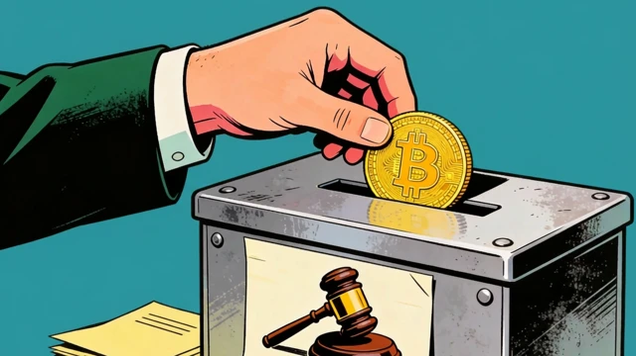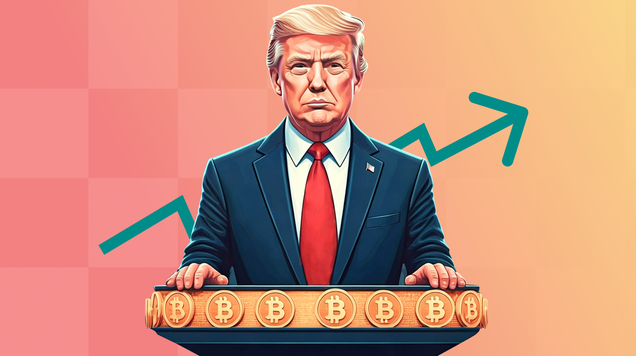Crypto week: U.S. Congress moves closer to regulatory breakthrough
U.S. lawmakers are pushing forward a trio of bills that could reshape the crypto landscape, driving Bitcoin to record highs and unlocking long-awaited regulatory clarity for institutional investors.

Congress advances three major crypto bills: the Clarity Act, Genius Act, and Anti-CBDC Surveillance State Act
Stablecoin oversight and digital asset classification stand to transform market structure
Legislation aims to reduce regulatory uncertainty and block potential Fed-issued CBDCs
Big week in crypto: Congress pushes three game-changing bills
This week in Washington might end up being a milestone for crypto. Lawmakers are taking up three major bills that could finally give the digital asset world a clear regulatory framework — something the industry has been chasing for years.
The attention is already hitting the markets. Bitcoin surged past $120,000, reaching a new record, with traders betting that real rules could unlock more growth and legitimacy. Big names like Coinbase and Galaxy Digital also rallied on the news, with investors starting to price in what cleaner regulation might mean for crypto firms and institutional adoption.
Clearing the fog: Commodities vs. securities
One of the key bills — the Digital Asset Market Clarity Act — is aimed at ending one of crypto’s longest-running headaches: who actually regulates what?
The issue centers around whether digital assets should be treated as commodities or securities, and right now, that decision is a confusing mess. This bill proposes splitting that responsibility: if an asset functions like a commodity, it’ll fall under the CFTC; if it acts like a security, then the SEC takes over.
The idea isn’t just about labels — it’s about unlocking growth. When founders and investors don’t know which rules apply, they hold back. This law would try to remove that ambiguity and give people room to build without worrying they’ll get blindsided by a lawsuit.
Stablecoins get a rulebook of their own
Another bill — the Genius Act — focuses specifically on stablecoins, which are digital currencies pegged to fiat money like the U.S. dollar. These are often used for moving money quickly or settling trades without the price swings of regular crypto.
This legislation already passed the Senate and is now moving through the House. If it becomes law, stablecoins would need to be fully backed by safe assets — like cash or short-term Treasury notes. It would also open the door for banks to issue their own versions, something that could pull traditional finance further into the crypto world.
In practical terms, this could speed up everything from payroll to cross-border transfers. Businesses might be more willing to use stablecoins once they know there’s a legal structure backing them — and that they’re not gambling with unregulated tokens.
Blocking CBDCs: Privacy concerns take center stage
The third proposal, known as the Anti-CBDC Surveillance State Act, seeks to prevent the Federal Reserve from issuing its own central bank digital currency (CBDC).
Supporters say the bill is necessary to prevent government overreach and to protect Americans’ privacy. Critics worry it could leave the U.S. behind as other countries, notably China and members of the European Union, develop digital versions of their currencies.
Still, for many in Congress, the idea of a government-issued token that could track consumer behavior is a step too far. If passed, the act would elevate state-level restrictions on CBDCs to a nationwide ban — and make clear that Washington sees a future for crypto, but not one driven by centralized state control.
Market impact: What’s at stake
Bitcoin’s surge this week is being seen not just as a response to price momentum, but as a reaction to what could be a regulatory sea change.
If the bills pass, crypto firms would face fewer legal uncertainties. Institutional investors — who have largely remained on the sidelines due to murky rules and enforcement risks — might finally step in with confidence.
According to industry sources, the legislative push represents a signal that U.S. lawmakers are ready to legitimize the space without smothering it. As one policy official put it, the focus is now on structure, not suppression.
The road ahead may still involve compromises, amendments, and political hurdles. But if Congress follows through this summer, 2025 could go down as the year crypto stopped waiting for regulation — and finally got it.








